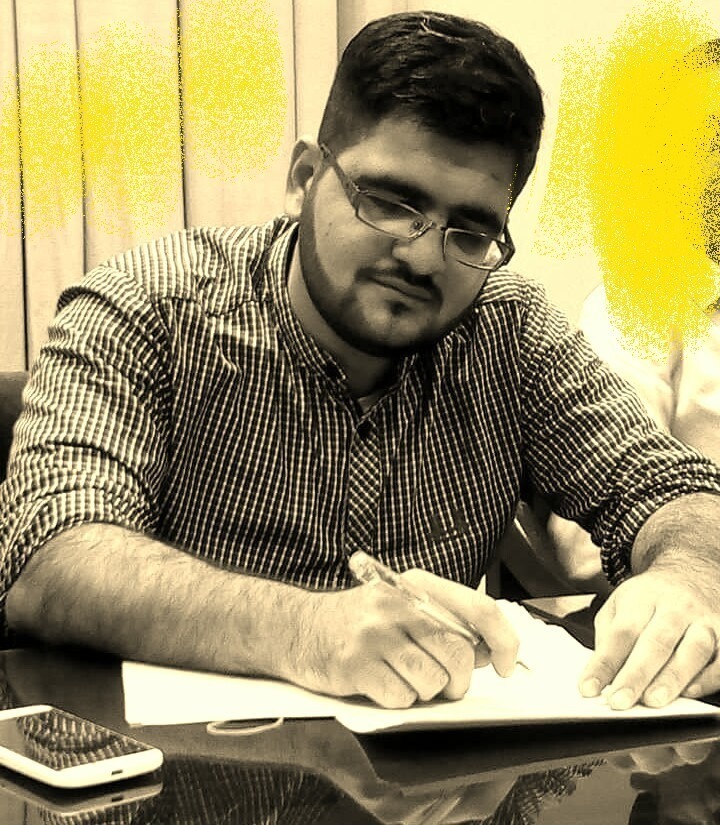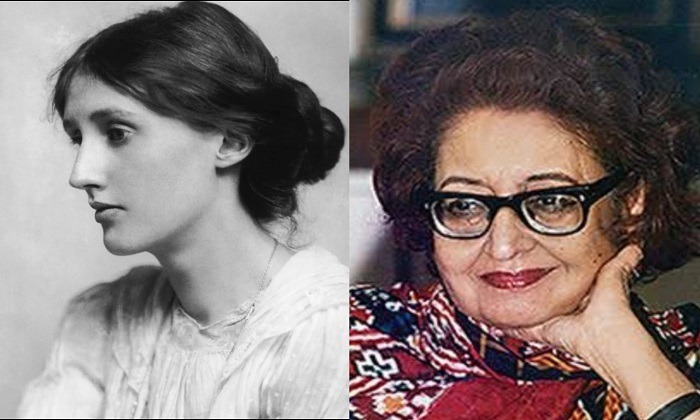[wp_ad_camp_1]

Iqbal Khursheed’s characters in his novel Tukoon Ki Chothi Jehat’ are free of any Chauvinisms
By Shaikh Naveed
Apparently, Iqbal Khursheed has succeeded to make characters of its new novel a Tukoon Ki Chothi Jehat, (Fourth Angle of a Triangle) without being influenced by any religious, racial and political prejudice.
In an era of emotional blackmailing, false reporting and news censoring, objectivity in fiction is a quite hard task. Writers have to be cautious in every step; otherwise, uncountable aggressive and provocative chants are ready to be shouted on the street or squares.
A writer’s first concern must be humanity or precious and matchless experience of a human being.
If a fiction writer fails to depict those deep human feelings, nevertheless, he uses stunning metaphors and similes full of patriotic and racial emotions, readers could not move and they have to take out their handkerchief to avoid the horrible smell of non-human writing like decomposing dead body.
When legendary Turk novelist Orhan Pamuk wrote his first and the last (according to his own words) political novel Snow, he had to face a hostile reception from secularists and religious fundamentalists.
Both rival groups had their own concerns about Pamuk’s novel.
In the Paris Review Interview, Pamuk said, ‘They (secularists) also didn’t like that I portrayed Islamists as human beings…..The political Islamists were upset because I wrote about an Islamist who had enjoyed sex before marriage”.
Paradoxically, one group, according to its extreme views were negating simple humanity and other theoretically claimed super-humanity.
One of the characters of Iqbal’s novella Jung-Ju (Warrior), despite being a fundamental terrorist, holds full noble human feelings. Drones have perished his family members. The smell of gunpowder, tears, and blood has become an essential part of his existence. He had to enter unintentionally in a war, which was imposed by others against his people and rich land. He believes that his people bodies are being used as a fuel of war.
Certainly, TKCJ (Tukoon Ki Chothi Jehat) is not a conventional love story. Its three major characters: Man (an abducted husband), Woman (a pregnant wife of abducted man) and Jang-Ju (An ex-lover of the woman), made a complicated triangle. But the fourth dimension of the triangle oppresses them badly.
The dimension of time appears in the novella as the fourth angle of the triangle and it leads three major characters into a fetal existential crisis where it rules with all power. Characters suffer continuous and unlimited silence of time and its inevitable passing through their deep subconscious but they could not have powers to resist.
They could not free themselves from this persecuting triangle.
Interestingly, this very theme of Iqbal’s novella reminds us Czech-French novelist Milan Kundera’s masterpiece “The Unbearable lightness of being”.
In that novel, Kundera doesn’t give us physical and clothing information about its two major protagonists Tereza and Tomas. Readers could unleash their own imagination about them freely.
Kundera’s protagonists felt the deeply unbearable lightness of their being and it seemed they run towards their fetal destiny unknowingly.
Iqbal Khursheed doesn’t show any interest in describing vivid details of his characters’ dressing and physical appearance; it seems he has trust and respect for the reader’s imagination.
Therefore, he prefers firmly the humanity of characters before any physical and racial discrimination.
His keen interest can be seen in humanity and human beings, in a war, which kind of mental pressure, worry and torture human face, novella revolving around these problems and comment lyrically on the devastating situation with an artistic touch.
Throughout the novella, readers can feel a melancholic atmosphere. Every character is deeply sad, even their ideas seem to hold deep melancholy and sometime this bleak atmosphere becomes unbearable, even for the reader.
Unlike conventional narrative, different parts of novella are written in the form of prose poem which is another different aspect of this novel.
Moreover, I guess this kind of typical narrative was needed because the story goes through some gray areas and ambiguity of prose poem was somehow essential.
Main themes of the novella are not politics and war; it is a simple Huznia (Tragedy) of diminishing human values and a moving record /of war-hell that is created by elite class against poor and common people.
A woman husband has been abducted by some terrorist in Northern Areas. Husband’s reminder, his son is breathing in women’s belly and gives her body courage and spirit to live.
In addition, the baby becomes the woman’s hope and partly fills the gap of husbands love and kindness. It is a seed of couples’ love that is rooting down in the woman’s body.
The man is ignorant over his pregnant wife, blindfolded, counting his last days among unknown abductors. Separation from his wife and pre-born baby keeps him a state of torture constantly.
It is said that his last hope is growing little flower which will become his home scented and will reduce the smell of shattering gunpowder.
Jang-Ju is a successful terrorist, though, his heart moves between love and terror like a pendulum. He wants to seek love but is compelled to hate. Unfortunately, he has to take part in the war to avenge his brothers, sisters, children and elders’ brutal killing that they have made by elite class.
He has to stand for fight for his own valley and river, however, their greenery ended and their water disappeared.
Surprisingly, he wants to become a good human in accordance with society morals. But, he was destined to promulgate terror into people minds by those authentic good humans who value their political victory above humanity and are satisfied and safe in their rooms.
Unlike a moving tragedy, Iqbal Khursheed seems optimistic. The triangle, which persecuted protagonists, created love among them, and make them understood the true meaning of hates, dissolves itself.
In a folding blanket, wearing wet pamper, hitting little legs and giggling newborn toddler announces the end of persecuting triangle and appears as a messenger of a new era of happiness.
Ends



